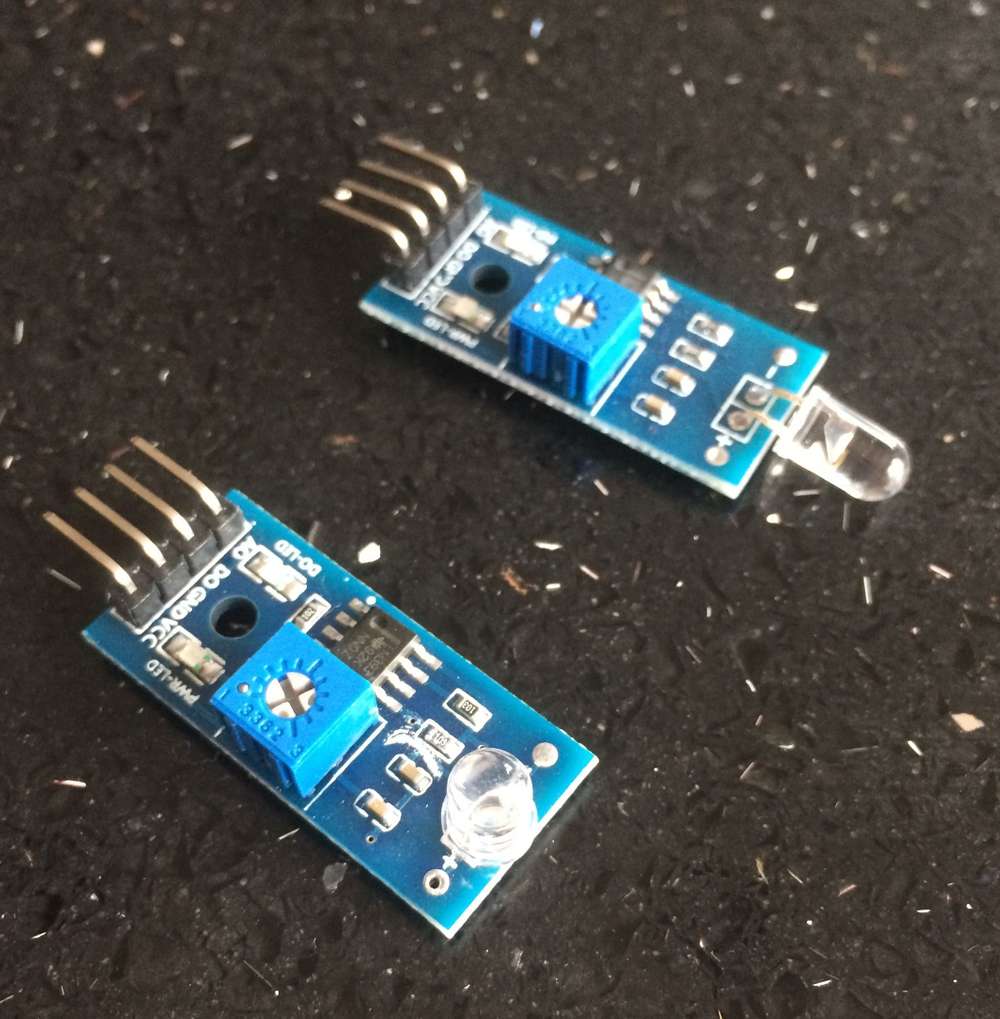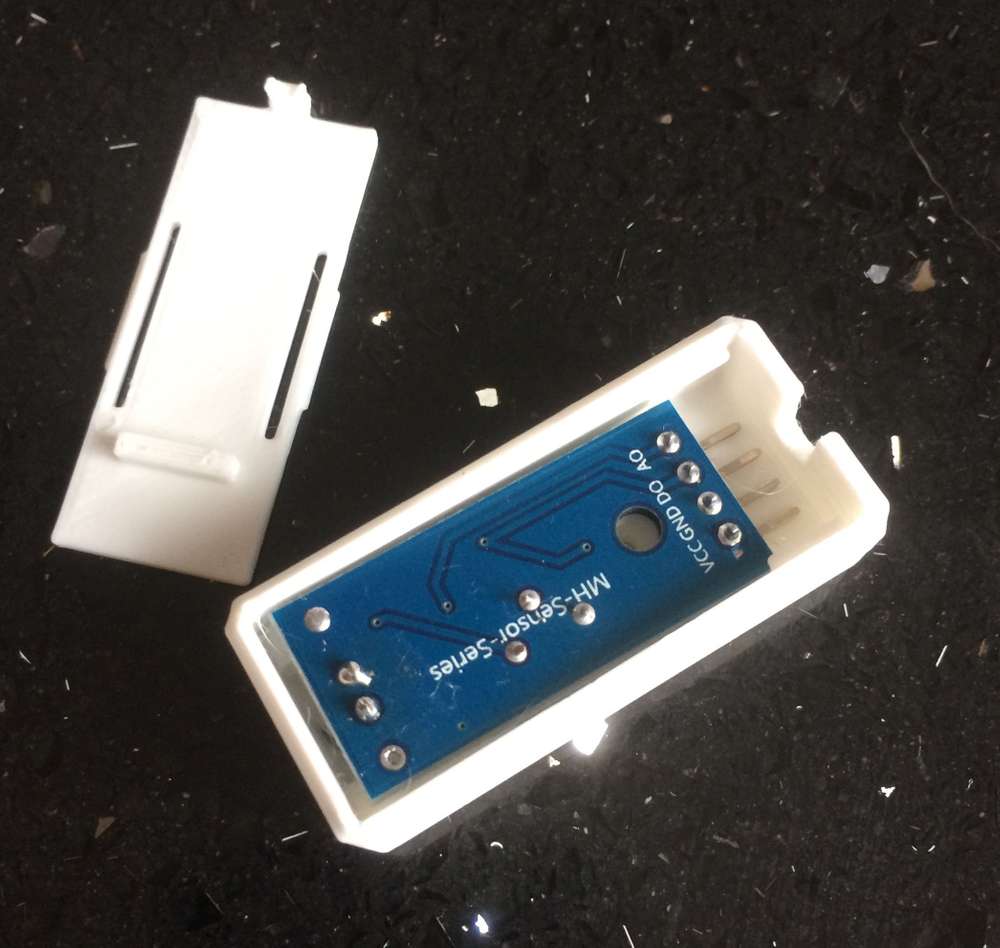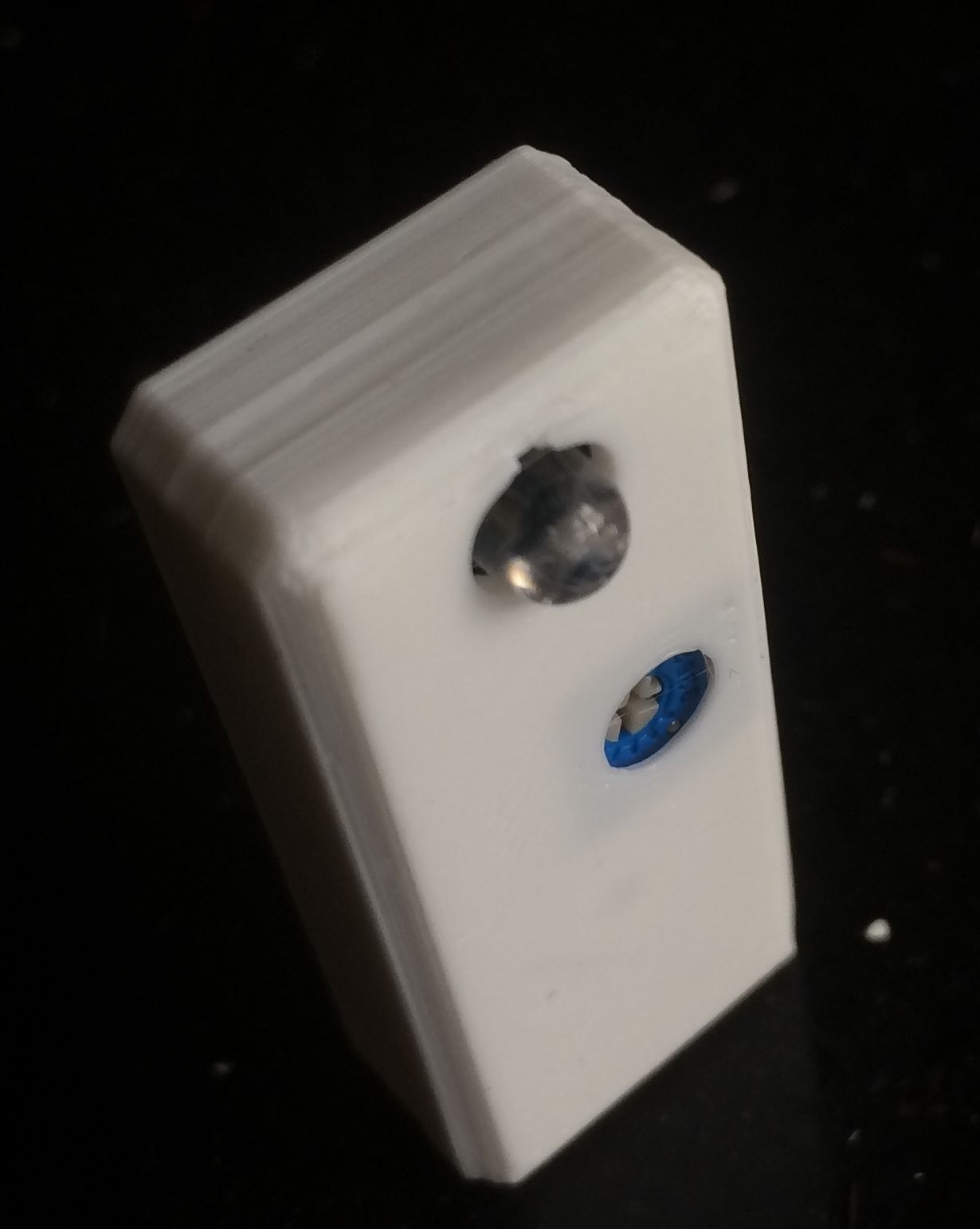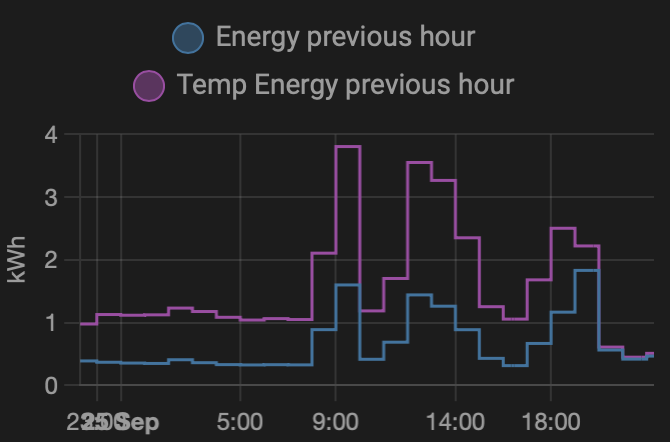@sundberg84 Thanks very much for this post. I was struggling to get the sensor appear in Home-Assistant. Your note on the fact that HA never returns V_VAR1 on first use was very useful and pointed me in the right direction.
My modifications looked like this:
} else if (sendTime && !pcReceived) {
// No pulse count value received from controller. Try requesting it again.
request(CHILD_ID, V_VAR1);
retryCount++;
lastSend = now;
} else if (retryCount >= 5 && !pcReceived) {
//For some controllers, if you dont have any V_VAR1 stored node will not get an answer.
//Try 5 times, then set V_VAR1 to 0 and update controller
pcReceived = true;
retryCount = 0;
send(pcMsg.set(pulseCount)); // Send pulse count 0 value to gw
double kWh = ((double)pulseCount / ((double)PULSE_FACTOR));
send(kWhMsg.set(kWh, 4)); // Send kWh value 0 to gw
lastSend = now;
}
The whole sketch is here:
/*
The MySensors Arduino library handles the wireless radio link and protocol
between your home built sensors/actuators and HA controller of choice.
The sensors forms a self healing radio network with optional repeaters. Each
repeater and gateway builds a routing tables in EEPROM which keeps track of the
network topology allowing messages to be routed to nodes.
Created by Henrik Ekblad <henrik.ekblad@mysensors.org>
Copyright (C) 2013-2019 Sensnology AB
Full contributor list: https://github.com/mysensors/MySensors/graphs/contributors
Documentation: http://www.mysensors.org
Support Forum: http://forum.mysensors.org
This program is free software; you can redistribute it and/or
modify it under the terms of the GNU General Public License
version 2 as published by the Free Software Foundation.
*******************************
REVISION HISTORY
Version 1.0 - Henrik Ekblad
Version 1.1 - Peter Andersson added millis watt calculation if time between pulses > 1h
DESCRIPTION
This sketch provides an example how to implement a LM393 PCB
Use this sensor to measure kWh and Watt of your house meter
You need to set the correct pulsefactor of your meter (blinks per kWh).
The sensor starts by fetching current kWh value from gateway.
Reports both kWh and Watt back to gateway.
Unfortunately millis() won't increment when the Arduino is in
sleepmode. So we cannot make this sensor sleep if we also want
to calculate/report watt value.
http://www.mysensors.org/build/pulse_power
*/
// Enable debug prints
#define MY_DEBUG
// Enable and select radio type attached
#define MY_RADIO_RF24
//#define MY_RADIO_NRF5_ESB
//#define MY_RADIO_RFM69
//#define MY_RADIO_RFM95
#include <MySensors.h>
#define DIGITAL_INPUT_SENSOR 3 // The digital input you attached your light sensor. (Only 2 and 3 generates interrupt!)
#define PULSE_FACTOR 1000 // Number of blinks per kWh of your meter. Normally 1000.
#define SLEEP_MODE false // Watt value can only be reported when sleep mode is false.
#define MAX_WATT 10000 // Max watt value to report. This filters outliers.
#define CHILD_ID 1 // Id of the sensor child
uint32_t SEND_FREQUENCY =
20000; // Minimum time between send (in milliseconds). We don't want to spam the gateway.
double ppwh = ((double)PULSE_FACTOR) / 1000; // Pulses per watt hour
bool pcReceived = false;
volatile uint32_t pulseCount = 0;
volatile uint32_t lastBlinkmicros = 0;
volatile uint32_t lastBlinkmillis = 0;
volatile uint32_t watt = 0;
uint32_t retryCount = 0; //If value not being returned from controller, increment this counter
uint32_t oldPulseCount = 0;
uint32_t oldWatt = 0;
double oldkWh;
uint32_t lastSend;
MyMessage wattMsg(CHILD_ID, V_WATT);
MyMessage kWhMsg(CHILD_ID, V_KWH);
MyMessage pcMsg(CHILD_ID, V_VAR1);
#if defined(ARDUINO_ARCH_ESP8266) || defined(ARDUINO_ARCH_ESP32)
#define IRQ_HANDLER_ATTR ICACHE_RAM_ATTR
#else
#define IRQ_HANDLER_ATTR
#endif
void IRQ_HANDLER_ATTR onPulse()
{
if (!SLEEP_MODE) {
uint32_t newBlinkmicros = micros();
uint32_t newBlinkmillis = millis();
uint32_t intervalmicros = newBlinkmicros - lastBlinkmicros;
uint32_t intervalmillis = newBlinkmillis - lastBlinkmillis;
if (intervalmicros < 10000L && intervalmillis < 10L) { // Sometimes we get interrupt on RISING
return;
}
if (intervalmillis < 360000) { // Less than an hour since last pulse, use microseconds
watt = (3600000000.0 / intervalmicros) / ppwh;
} else {
watt = (3600000.0 / intervalmillis) /
ppwh; // more thAn an hour since last pulse, use milliseconds as micros will overflow after 70min
}
lastBlinkmicros = newBlinkmicros;
lastBlinkmillis = newBlinkmillis;
}
pulseCount++;
}
void setup()
{
// Fetch last known pulse count value from gw
request(CHILD_ID, V_VAR1);
// Use the internal pullup to be able to hook up this sketch directly to an energy meter with S0 output
// If no pullup is used, the reported usage will be too high because of the floating pin
pinMode(DIGITAL_INPUT_SENSOR, INPUT_PULLUP);
attachInterrupt(digitalPinToInterrupt(DIGITAL_INPUT_SENSOR), onPulse, RISING);
lastSend = millis();
}
void presentation()
{
// Send the sketch version information to the gateway and Controller
sendSketchInfo(F("Energy Meter"), F("1.1"));
// Register this device as power sensor
present(CHILD_ID, S_POWER);
}
void loop()
{
uint32_t now = millis();
// Only send values at a maximum frequency or woken up from sleep
bool sendTime = now - lastSend > SEND_FREQUENCY;
if (pcReceived && (SLEEP_MODE || sendTime)) {
// New watt value has been calculated
if (!SLEEP_MODE && watt != oldWatt) {
// Check that we don't get unreasonable large watt value, which
// could happen when long wraps or false interrupt triggered
if (watt < ((uint32_t)MAX_WATT)) {
send(wattMsg.set(watt)); // Send watt value to gw
}
Serial.print("Watt:");
Serial.println(watt);
oldWatt = watt;
}
// Pulse count value has changed
if (pulseCount != oldPulseCount) {
send(pcMsg.set(pulseCount)); // Send pulse count value to gw
double kWh = ((double)pulseCount / ((double)PULSE_FACTOR));
oldPulseCount = pulseCount;
if (kWh != oldkWh) {
send(kWhMsg.set(kWh, 4)); // Send kWh value to gw
oldkWh = kWh;
}
}
lastSend = now;
} else if (sendTime && !pcReceived) {
// No pulse count value received from controller. Try requesting it again.
request(CHILD_ID, V_VAR1);
retryCount++;
lastSend = now;
} else if (retryCount >= 5 && !pcReceived) {
//For some controllers, if you dont have any V_VAR1 stored node will not get an answer.
//Try 5 times, then set V_VAR1 to 0 and update controller
pcReceived = true;
retryCount = 0;
send(pcMsg.set(pulseCount)); // Send pulse count 0 value to gw
double kWh = ((double)pulseCount / ((double)PULSE_FACTOR));
send(kWhMsg.set(kWh, 4)); // Send kWh value 0 to gw
lastSend = now;
}
if (SLEEP_MODE) {
sleep(SEND_FREQUENCY, false);
}
}
void receive(const MyMessage &message)
{
if (message.getType()==V_VAR1) {
pulseCount = oldPulseCount = message.getLong();
Serial.print("Received last pulse count value from gw:");
Serial.println(pulseCount);
pcReceived = true;
}
}




